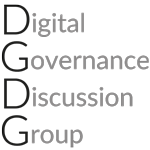By Jimson Olufuye.
The Netmundial+10 convened at the Grand Hyatt Hotel, Sao Paulo, Brazil on April 29-30, 2024. It was a logical follow-up to the maiden edition in 2014. The 2014 edition took place as a result of the urgent need to address the asymmetric oversight by the United States [https://aficta.africa/latest-news/480-the-evolving-face-of-enhanced-cooperation-what-is-next-after-wgec2-0] of the critical Internet resource (domain name system & the IANA function) which had become a global resource for the benefit of all.
Continue reading “Netmundial+10: projecting the benefit of Multistakeholderism”
